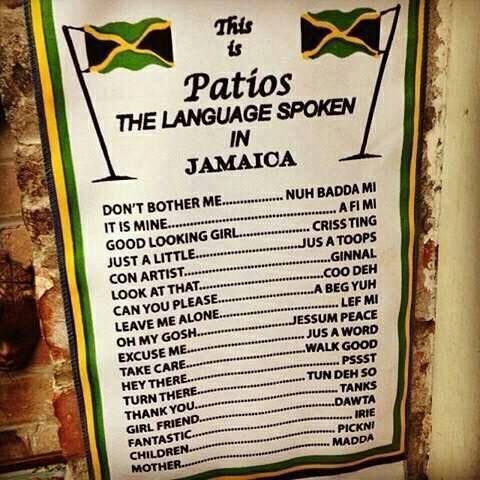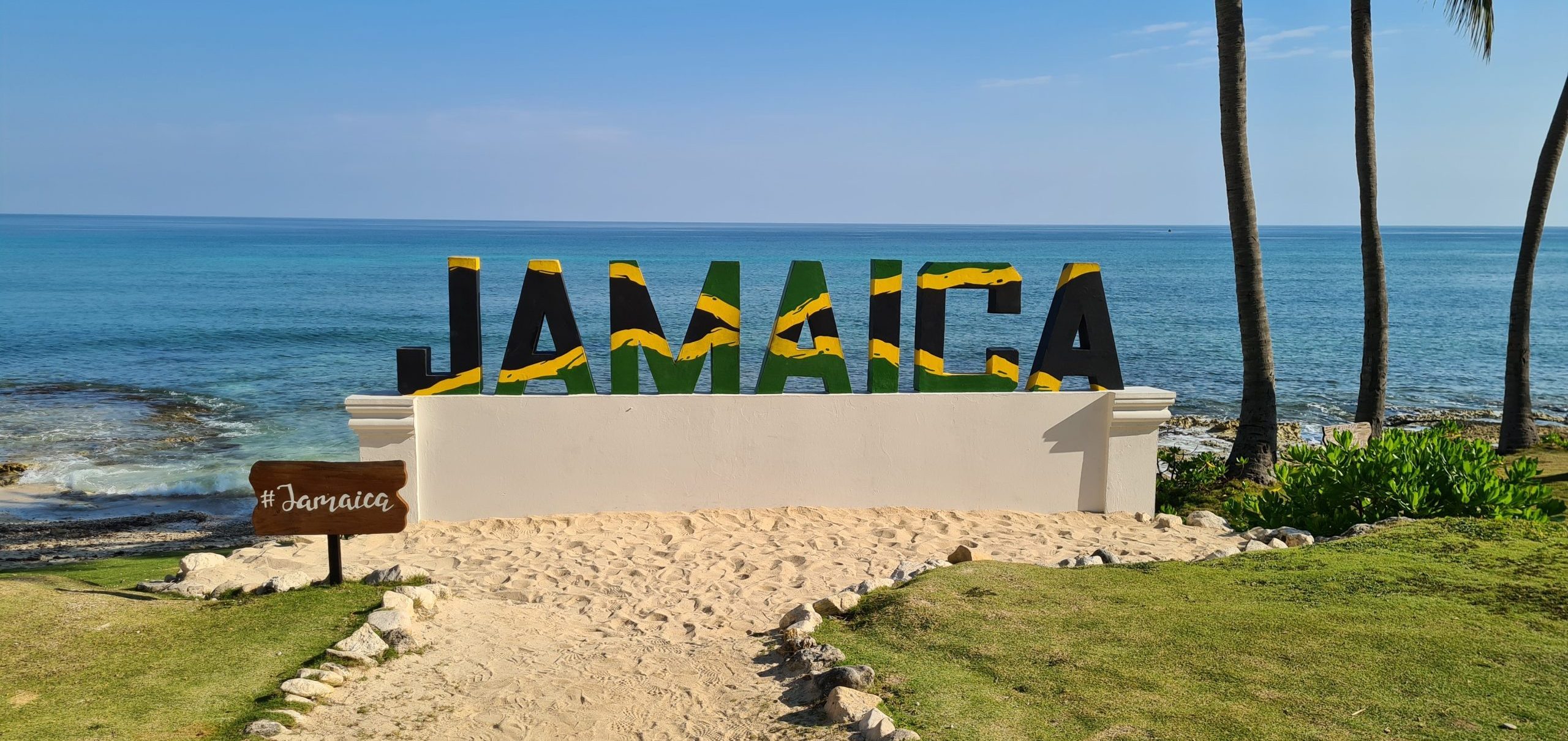Jamaican Patois, often referred to as Patwa or Patwah, is a rich and captivating language spoken by the people of Jamaica. This unique dialect, which evolved from a blend of English, African, and other linguistic influences, is more than just a means of communication – it is a testament to the island’s vibrant culture and history. Whether you’re planning a trip to Jamaica, have Jamaican friends, or simply want to immerse yourself in a new linguistic experience, mastering the art of Jamaican Patois can open up a world of cultural exchange and understanding.
Navigating the Patois Landscape: Key Phrases and Expressions
Jamaican Patois is a language that is deeply rooted in the daily lives of its speakers. From casual greetings to expressions of emotion and cultural nuances, the language is a tapestry of colorful and evocative phrases. Let’s explore some of the most common and essential Jamaican Patois expressions and their English translations:
Greetings and Farewells
- “Mi soon come” – I’ll be right back
- “Likkle more” – See you later
- “Walk good” – Goodbye (literally “walk well”)
Describing Emotions and Experiences
- “Tun up” – Excellent, amazing
- “Wicked” – Fantastic, great
- “Mi nuh biznizz” – I don’t care
- “Badmind” – Jealous
Everyday Expressions
- “Nyam” – To eat
- “Bredren” (male) / “Sistren” (female) – Friend
- “Yard” – Jamaica
- “Wha gwaan?” – What’s up?
- “Everyting criss” – Everything is good
Diving Deeper: Mastering the Nuances of Jamaican Patois
 Beyond the basic phrases, Jamaican Patois is a rich and complex language that offers a glimpse into the island’s cultural heritage. As you delve deeper into the world of Patois, you’ll discover a wealth of expressions, idioms, and linguistic quirks that add depth and character to the language.
Beyond the basic phrases, Jamaican Patois is a rich and complex language that offers a glimpse into the island’s cultural heritage. As you delve deeper into the world of Patois, you’ll discover a wealth of expressions, idioms, and linguistic quirks that add depth and character to the language.
Expressing Emphasis and Intensity
- “Big up” – Well done, respect
- “Tun up de ting” – Step up your game
- “De party tun up” – The party was good!
Addressing Challenges and Confrontations
- “Nuh romp wid mi” – Don’t mess with me
- “Small up yuhself” – Move over
- “Pasa pasa” – Mix up, confusion
Unique Cultural References
- “Jeezum pees” – OMG (literally “Jesus, please”)
- “Happy earthstrong” – Happy birthday
- “Tek mi picha” – Take my picture
Expressing Ownership and Possession
In the world of Jamaican Patois, claiming ownership and belongings takes on a distinct flair. Phrases like “A fe mi cyar” (It’s my car) and “Dat a mi bredda” (That is my brother) showcase the direct and assertive nature of Patois speakers when it comes to their possessions.
Describing Actions and Movements
Jamaicans have a way of conveying their actions and movements with a captivating rhythm. Expressions such as “Mi ah guh lef tiday” (I am leaving today) and “Mi a go bak a wuk pan Chewsday” (I am going back to work on Tuesday) paint vivid pictures of the speaker’s intentions and movements.
Conveying Emotions and Attitudes
The Jamaican Patois language is rich in its ability to express a wide range of emotions and attitudes. Phrases like “Im too haad eaize” (He/She is too stubborn) and “Nuh bodda mi” (Don’t bother me) convey a sense of stubbornness and a desire for personal space, respectively.
Seeking Information and Asking Questions
Jamaican Patois also shines when it comes to inquiring and seeking information. Sentences like “Axe har de question” (Ask her the question) and “Ah who dat?” (Who is that?) demonstrate the directness and curiosity that are hallmarks of the language.
Describing Comparisons and Contrasts
Jamaicans have a knack for making comparisons and drawing contrasts, often in a colorful and expressive manner. Phrases such as “Im badda dan dem” (He is worse than they are) and “Bare dog dung inna dat yard” (There are only dogs in that yard) illustrate this unique approach to comparative language.
Expressing Concern and Caution
Patois speakers also have a way of conveying concern and caution through their language. Sentences like “No bodda bawl im soon cum bak” (Don’t bother crying he’ll soon be back) and “Tek yuh time an mine it bruk” (Take your time, you might break it) demonstrate the care and consideration that can be found in Jamaican Patois.
Describing Appearances and Perceptions
Jamaicans often use their language to comment on appearances and perceptions, adding a touch of flair and personality. Expressions like “Cuyah, she gwan lak she nice eee?” (Look at that, she acts like she is so nice) and “Dat dawta pretty lakka money” (That daughter is pretty like money) showcase this unique approach to describing physical attributes and behaviors.
Expressing Desires and Preferences
The Jamaican Patois language also allows for the articulation of desires and preferences. Phrases such as “Mi love chaklit cake with nuff icenin” (I love chocolate cake with plenty of icing) and “Mi like yuh cris cyar” (I like your new car) demonstrate the expressive nature of Patois when it comes to personal tastes and inclinations.
Describing Quantities and Amounts
Jamaicans have a way of conveying quantities and amounts with a distinct flair. Sentences like “Sell mi tree poun ah swimps” (Sell me three pounds of shrimps) and “Beg a likkle bokkle ah milk” (I asking for a little bottle of milk) illustrate this unique approach to quantifying and measuring.
Addressing Others and Calling Attention
Patois speakers also have a unique way of addressing others and calling attention. Expressions like “Ello, mi can help yuh wid sumting?” (Hello, can I help you with something?) and “Ooo goes dere?” (Who goes there?) demonstrate the direct and engaging nature of Jamaican Patois in interpersonal interactions.
Expressing Gratitude and Appreciation
The Jamaican Patois language also shines when it comes to expressing gratitude and appreciation. Phrases such as “Tanks fe de glass a ice wata” (Thanks for the glass of ice water) and “A wan irie likkle place” (It’s a very nice place) showcase the warmth and appreciation that are integral to Patois discourse.
Describing Troublesome Situations
Jamaicans have a way of articulating troublesome situations with a touch of color and personality. Sentences like “Yuh inna big chobble” (You are in big trouble) and “Ef yuh chobble ‘im, me a guh bax yuh” (If you trouble him, I am going to hit you) demonstrate the expressive and assertive nature of Patois when it comes to addressing challenges and conflicts.
“Mi Soon Come” – I Will Be Right Back
This common Jamaican expression conveys the idea of a swift return, assuring the listener that you’ll be back shortly.
“Nyam” – To Eat
The Patois word “nyam” is the go-to term for the act of eating, capturing the essence of indulging in a delicious meal.
“Jamrock,” “Jamdown,” “Yard” – Jamaica
These three terms are all affectionate references to the island of Jamaica, with “Jamrock” and “Jamdown” being the more colloquial variations.
“Yardie,” “Yard Man” – Jamaican
Jamaicans often refer to themselves and their fellow islanders using the terms “Yardie” and “Yard Man,” which convey a sense of pride and belonging to the Jamaican community.
“Bredren,” “Sistren” – Friend (Male/Female)
These gender-specific terms of endearment are used to address close friends and confidants, fostering a sense of camaraderie and kinship.
Expressing Approval and Admiration
Jamaicans have a unique way of expressing praise and appreciation, and understanding these terms can help you connect with the local culture:
“Big Up,” “Respect” – Well Done
These phrases are used to convey admiration and recognition for a job well done, showcasing the Jamaican spirit of encouragement and support.
“Sell Off,” “Tun Up,” “Wicked” – Excellent
When a Jamaican describes something as “Sell Off,” “Tun Up,” or “Wicked,” they’re expressing their utmost approval and enthusiasm for an exceptional achievement or experience.
Greetings and Inquiries
Navigating Jamaican social interactions often involves mastering the art of greetings and inquiries. Here are some essential Patois phrases to get you started:
“Wah Gwaan,” “Whappen,” “Whe Yu a Seh?” – What’s Up?
These casual greetings are the Jamaican equivalents of the English phrase “What’s up?” and are used to initiate friendly conversations.
“Mi Deh Yah,” “Everyting Criss” – Everything is Good
When a Jamaican responds with “Mi Deh Yah” or “Everyting Criss,” they’re conveying that all is well and that they’re in a good state of being.
“Likkle More,” “Walk Good” – See You Later
These parting phrases are Jamaican ways of saying “See you later” or “Take care,” wishing the other person a safe and pleasant journey.
Expressing Understanding and Location
Jamaican Patois also offers unique ways to convey understanding and describe locations:
“Zeen” – I Understand
The simple utterance of “Zeen” lets the other person know that you’ve comprehended what they’ve said, demonstrating your engagement in the conversation.
“Ova Deh” – Over There
When a Jamaican points to a location and says “Ova Deh,” they’re directing your attention to a specific place or object in the distance.
Conveying Emotions and Attitudes
Jamaican Patois is rich in expressions that capture a range of emotions and attitudes. Here are a few examples:
“Wha Yuh Deh Pon” – What Are You Up To?
This phrase is used to inquire about someone’s current activities or the task they’re engaged in, often with a hint of curiosity or playfulness.
“Mi Nuh Biznizz” – I Don’t Care
The Patois expression “Mi Nuh Biznizz” conveys a sense of indifference or disinterest, indicating that the matter at hand is not one’s concern.
“Badmind” – Jealous
When a Jamaican accuses someone of being “Badmind,” they’re suggesting that the person is harboring feelings of envy or resentment.
Enhancing Conversations and Interactions
Jamaican Patois offers a rich tapestry of phrases that can elevate your conversations and interactions with Jamaicans:
“Tun Up De Ting” – Step Up Your Game
This energetic expression encourages someone to put in more effort, to “turn up the thing” and improve their performance or output.
“De Party Tun Up” – The Party Was Good!
Jamaicans use this phrase to express their enthusiasm and enjoyment of a lively and successful social gathering.
“Jeezum Pees” – OMG
The exclamation “Jeezum Pees” is the Jamaican equivalent of the English expression “Oh my God,” conveying surprise, shock, or disbelief.
Navigating Situations and Giving Directives
Jamaican Patois also provides unique ways to navigate various situations and give directives:
“Nuh Romp Wid Mi” – Don’t Mess with Me
This assertive phrase is a warning to someone, indicating that they should not try to provoke or antagonize the speaker.
“Small Up Yuhself” – Move Over
When a Jamaican says “Small Up Yuhself,” they’re politely asking the other person to make some room or give them space.
“Pasa Pasa” – Mix Up
The Patois term “Pasa Pasa” is used to describe a situation where things have become disorganized or chaotic, often requiring intervention to restore order.
Capturing Moments and Celebrating Milestones
Jamaican Patois also offers special ways to capture memorable moments and celebrate significant occasions:
“Tek Mi Picha” – Take My Picture
This phrase is the Jamaican way of requesting someone to take a photograph, preserving a cherished moment for posterity.
“Happy Earthstrong” – Happy Birthday
In Jamaican Patois, the term “Earthstrong” is used to refer to one’s birthday, and the phrase “Happy Earthstrong” is the equivalent of “Happy Birthday” in English.
Embracing the Richness of Jamaican Patois
Jamaican Patois is more than just a language – it is a vibrant cultural tapestry that reflects the resilience, creativity, and spirit of the Jamaican people. By immersing yourself in the nuances of Patois, you’ll not only improve your communication skills but also gain a deeper appreciation for the island’s rich heritage and the warmth of its people.
Exploring Jamaican Patois Resources
Whether you’re a language enthusiast, a frequent visitor to Jamaica, or simply curious about the island’s linguistic landscape, there are numerous resources available to help you dive deeper into the world of Jamaican Patois. From online dictionaries and language learning apps to specialized books and cultural immersion experiences, the opportunities to expand your Patois knowledge are endless.
Conclusion
Mastering the art of Jamaican Patois is not just about learning a new language – it’s about embracing a unique cultural experience. By engaging with the vibrant and expressive Patois, you’ll unlock a deeper understanding of the Jamaican way of life, fostering meaningful connections and enriching your travels or interactions with Jamaican friends and communities. So, embark on this linguistic adventure, and let the rhythmic cadence of Jamaican Patois guide you on an unforgettable journey of cultural discovery.
For recommendations on some of the best times to visit Jamaica, you can check out our guide here.
—
If you’re traveling to Jamaica alone, ensure you take all the necessary measures to keep safe. Read about how you can stay safe while visiting Jamaica. If you decide to visit any resort, be sure to tag us in your photos and videos @resortcaribbean, and follow our socials: Instagram, Facebook, YouTube.







![What You Need to Know before Visiting Azul Beach Resort Negril Jamaica Gourmet All-Inclusive [Resort Review] Azul Beach Resort Pool](https://resortcaribbean.co/wp-content/uploads/2021/09/20210828_091210-2-100x70.jpg)
![Visiting Ocean Coral Spring – One of Jamaica’s Most Famous Resorts [Resort Review] Visiting Ocean Coral Spring - One of Jamaica's Most Famous Resorts](https://resortcaribbean.co/wp-content/uploads/2021/11/20211106_155809-scaled-e1716408051807-100x70.jpg)
[…] Common Jamaican Patois Phrases Translated to English […]